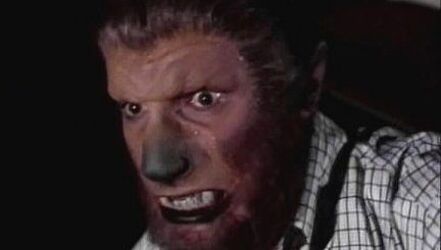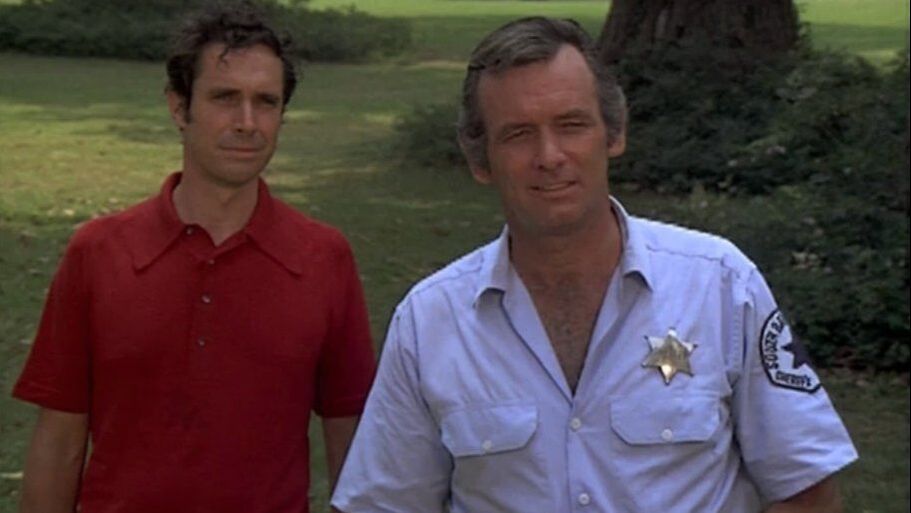 Welcome to a weekly series in which Doris V. Sutherland takes readers on a trip through the history of werewolf cinema... Moon of the Wolf (1972) opens in the aftermath of a brutal murder in a small Louisiana town. The victim is a young woman whose body appears to have been mauled by dogs, yet closer examination indicates that she had been attacked by a human assailant. The local sheriff, Aaron Whitaker (David Janssen), must follow a trail to the true culprit, who turns out to be a werewolf. This film is something of a rarity: a cinematic adaptation of a werewolf novel, the source material being the 1967 book of the same name by Leslie H. Whitten. To put this in context, the previous two literary adaptations in werewolf cinema were The Curse of the Werewolf (1961) and The Undying Monster (1942). The story’s origins on the printed page may explain why director Daniel Petrie and scriptwriter Alvin Sapinsley went for a talky, sedate tone for their adaptation – although the fact that the film was made for TV would also account for its restrained feel. This is the sort of one-step-removed horror film that politely ends a death scene on a freeze-frame just before the werewolf gets his teeth into the latest victim. Indeed, Moon of the Wolf generally resembles a rather laid-back murder mystery more than it does a conventional horror film. The werewolf doesn’t return until halfway through (and even then stays off-camera thanks to first-person filming); before this point, the story consists of Sheriff Whitaker wandering around town and interviewing various locals, with no idea that anything supernatural is afoot. The actors do a perfectly competent job of bringing the material to life, but the overall impression is that something’s slightly off about this werewolf saga. During the course of his investigation, Sheriff Whitaker turns up multiple suspects. One is the victim’s abusive brother (Geoffrey Lewis), who was not above physically assaulting his sister when she was alive. Another is the local doctor (John Beradino), who impregnated the woman before ending his relationship with her when she refused to get an abortion – details he decided not to divulge when performing an autopsy on her. This is solid material for a typical murder mystery, but the trouble is, Moon of the Wolf isn’t a typical murder mystery. Most viewers going into the film will know that it’s about a werewolf, and that werewolves generally don’t have motives beyond animal instinct. This means that the characters carefully established as having potential motives for murder are easily-spotted red herrings. Meanwhile, anybody familiar with werewolf conventions (particularly the motif of cursed families) should have a pretty good guess of who the real culprit is. Conversely, any viewer who doesn’t know that Moon of the Wolf is about a lycanthrope, and expects a murder mystery with proper criminal psychology, will likely feel pretty conned by the inverted Scooby-Doo ending. Moon of the Wolf suffers from what must surely be the kiss of death for any monster movie: it probably would’ve been better off without its monster. By Doris V. Sutherland
0 Comments
Leave a Reply. |
Archives
March 2023
|

 RSS Feed
RSS Feed